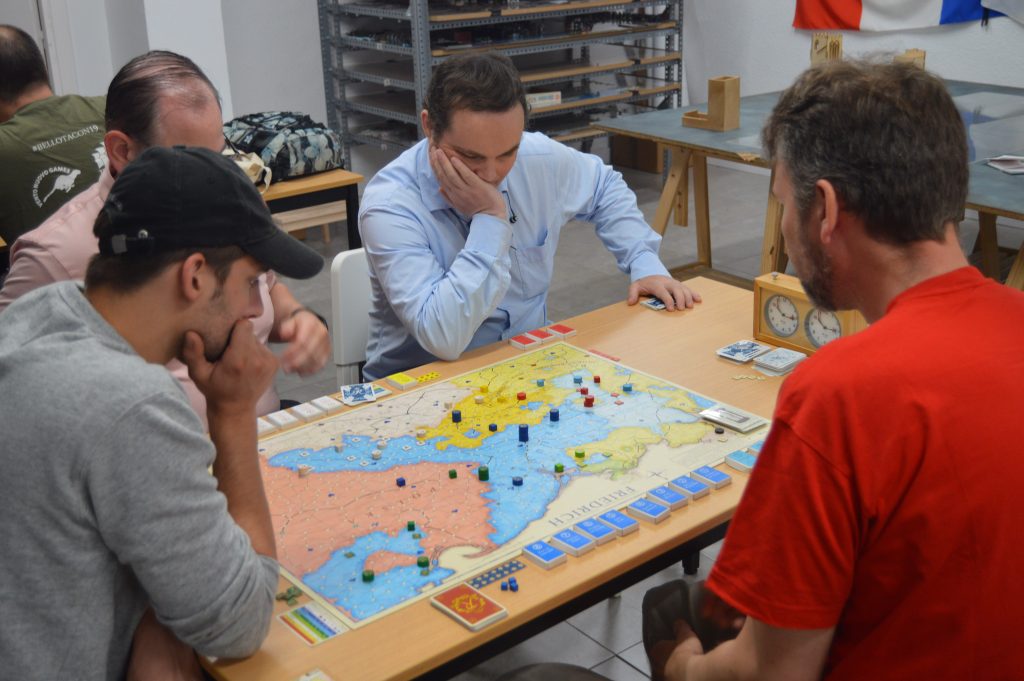
All four players in deep concentration. Three Prussian generals have come back on in Berlin.
Table 1
Everything is running as usual for veteran Friedrich player Andreas Zöllitz and his Prussians until misfortune slaps him in the face with Lord Bute as the first Card of Fate. From then on his fight becomes more and more desperate as rounds go by and only the Swedes go off the board. His opponents run out of clock time and are constrained by the stopwatch, but this doesn’t seem to reduce their pressure. On round 15 Felix Schmucher’s Russians destroy the last Prussian before them and are a round away from victory, but Andreas isn’t able to hold out for one more round against Austria (Mark Luta) and France (David Fernández), who score a double victory. Andreas’ Prussias end the game with just four tactical cards left.
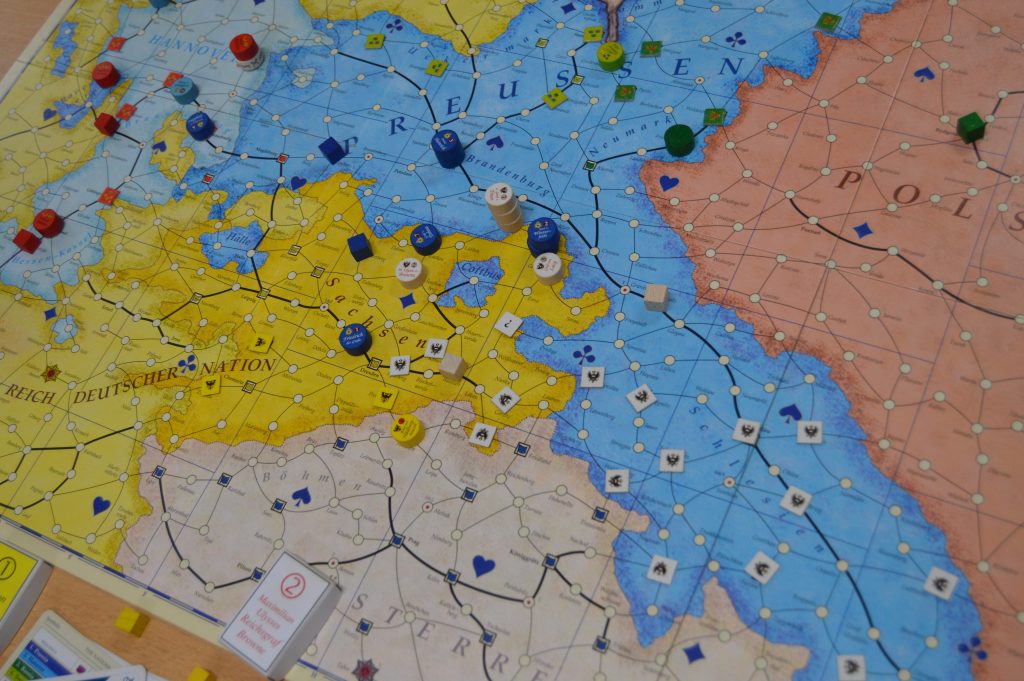
One final push for victory.
Table 2
Juan had reason to hope and reason to despair in his first game in a tournament playing as Prussia. Daniel, who just learned to play the game this January and was directing the green pieces on this table, was as inexperienced has he was, but both John (France) and Alex Calderón (Austria) were seasoned players. Juan was able to mount an effective defence against France, and held Russia at bay in East Prussia, but soon started to give up one objective after the other against Austria in both Silesia and Saxony. Finding himself cornered in the clubs sector in Silesia, Juan lost his last primary objective to Austria early on, and soon afterwards Alex mounted one last concentrated attack taking Muskau and thus sealing victory in round 11.
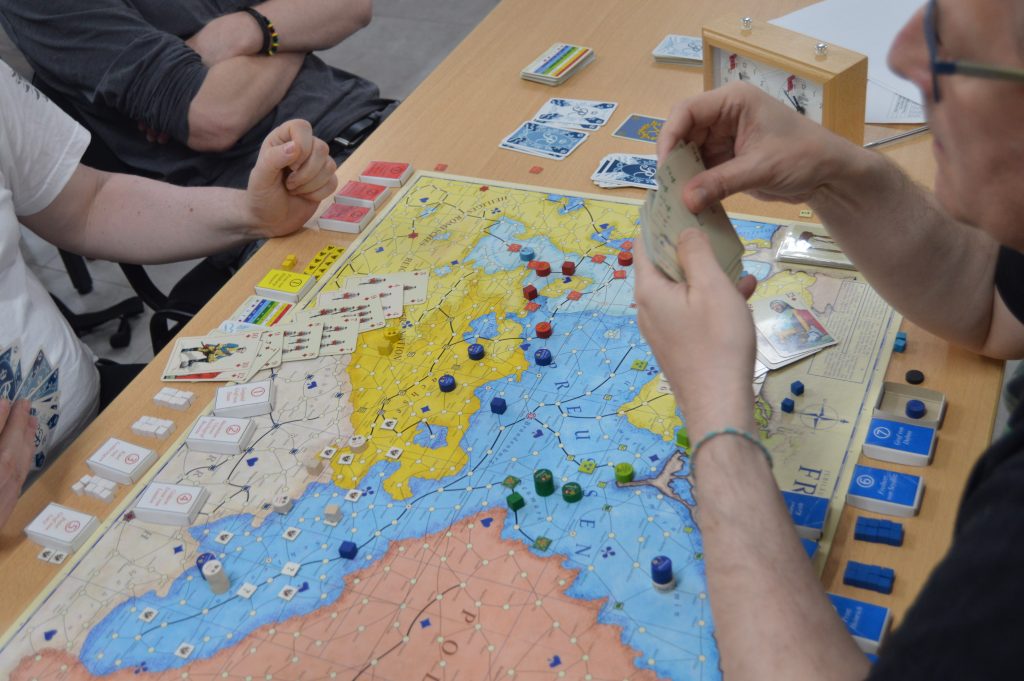
Big fight in diamonds in Silesia. Two Prussian generals stand victorious in Kammin, and a Hanoverian general is causing trouble in France’s southern flank. Magdeburg is protected by two Prussian generals against a lone French army. Everything is under control.
Table 3
This was no easy game for Prussia (Guy Atkinson) as Lord Bute appeared relatively early (round 8) and his main enemies went off the board rather late (France in round 16 and Russia in round 18). The Allied players – Björn as Russia, Arnold as Austria, and Alexander Schröder as France – all had previous experience in Berlin. Nevertheless, Guy was able to weather the storm and emerge victorious after 19 rounds. He had enough clubs to hold Russia at bay in Kammin, and Austria’s persistent attacks with army superiority notwithstanding, Arnold was still four objectives short of victory at the end. France wasn’t able to properly concentrate to take Magdeburg due to a classical “Triangle Defence”.
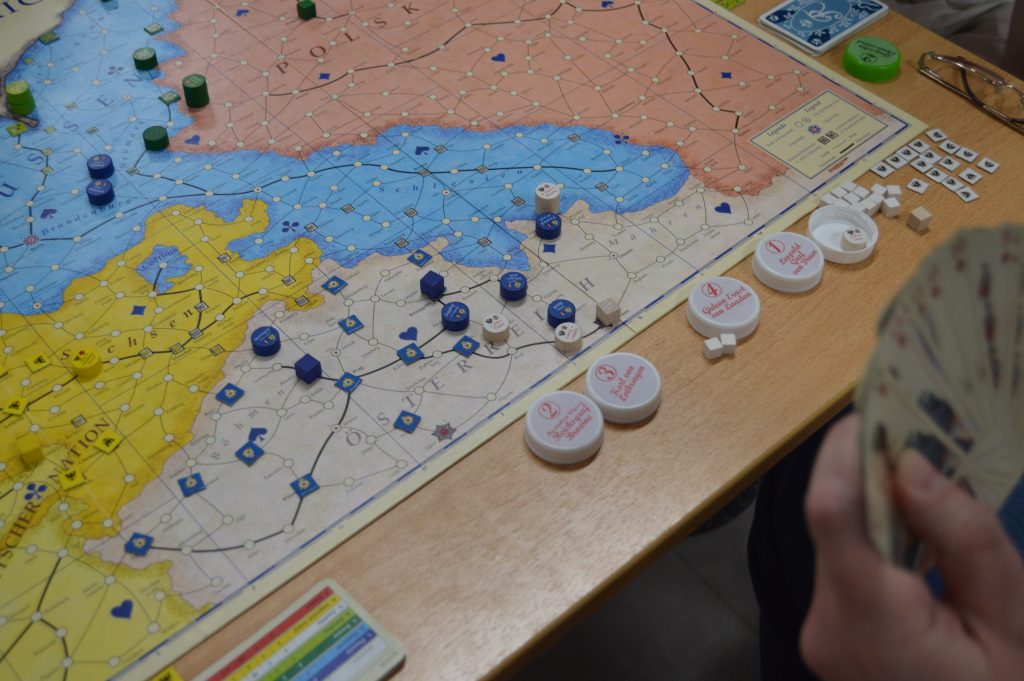
This is the furthest extent of the Prussian Offensive. The picture shows José Manuel’s last attempt at victory.
Table 4
José Manuel opted for the Offensive Option on round 3, and he started spectacularly by encircling and destroying three Austrian generals and their 22 troops. Maurice de Wijs had to draw upon his yearlong experience of several tournaments to stave off defeat and cling on to Prussia’s last objective at Trübau. Poems as the first Card of Fate and a very timely draw of several diamonds helped him to turn the tide and stop the offensive in round 11. José Manuel still hoped for any of his enemies to drop out of the game, but as the rounds went by this didn’t happen. The French, led by Juanjo, non-competing player, were not very agressive. Maurice took a long time to recover from the Prussian onslaught, but was able to overrun Silesia in the process, while the Empire did not advance at all for many rounds. But Andrew Brown’s Russians knew no mercy and after continuous and relentless attacks, clinched victory in round 19.
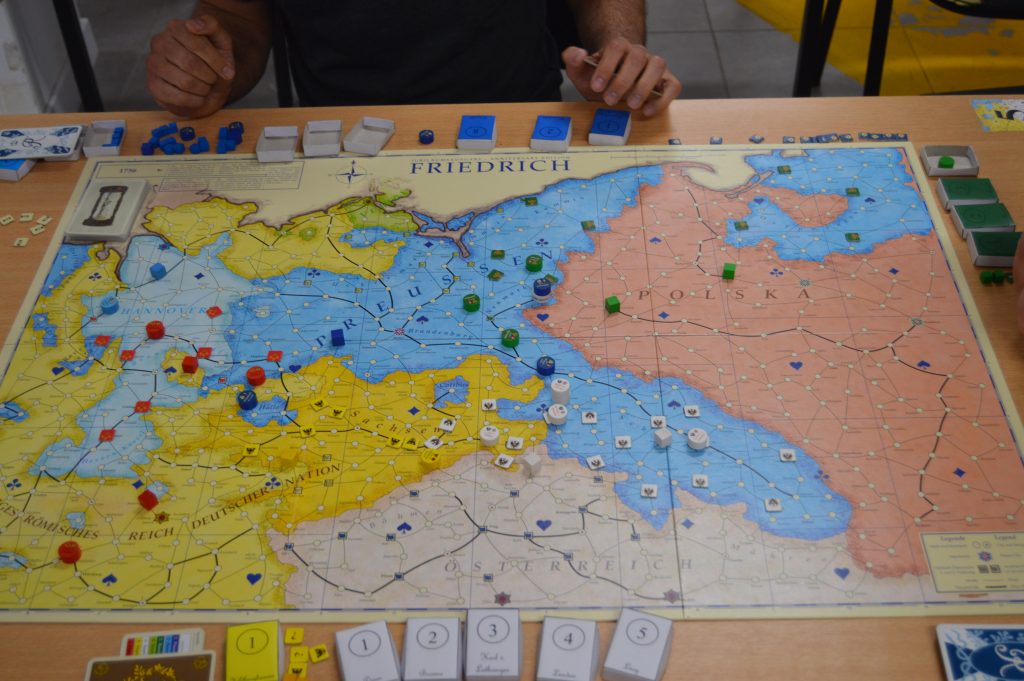
Situation at the end of the game. The Prussian defence lies in tatters.
Table 5
Though he did well in the training games played in the weeks preceding the tournament, it seems that Javier Lobato (who was playing Prussia at this table) couldn’t cope with the pressure of competition and was only able to hold out for 13 rounds before succumbing to Austrian (David Önkür) pressure. Javier certainly fought a lot, with just three dark blue generals remaining on the board at end of the game, but the Prussians allowed themselves to be slowly pushed around by their enemies rather than deciding where to put up a solid defence. Thus, Prussia’s last stand happened to be in the club’s sector in Silesia.


 Español
Español

